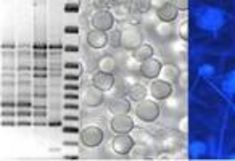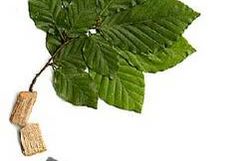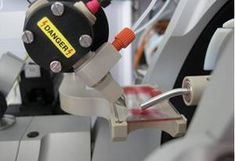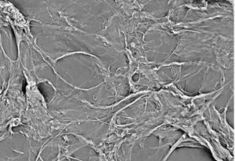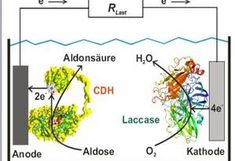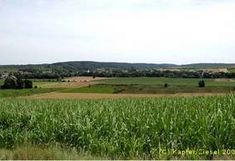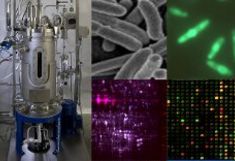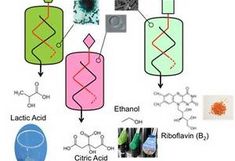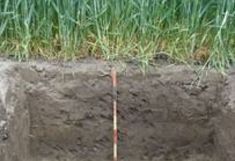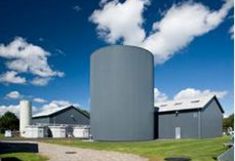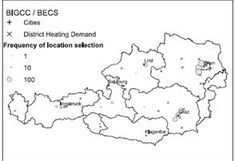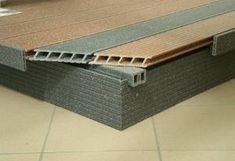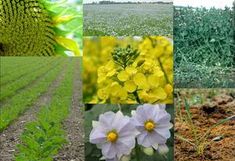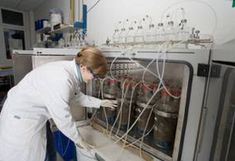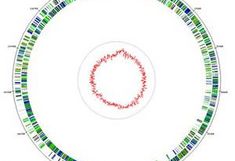Partner
Partner of our network
The platform Bioconversion of Renewables is an open network of scientists and research institutes who are in continuous dialogue and working together in innovative projects. Following are the current partner of the network (in alphabetical order). For other institutions who are interested, this platform is always open.
Austrian Center of Biological Resources and Applied Mycology: ACBR BRIDGE-Research project of Plant Biotechnology Unit Department of Chemistry - Chair for Wood Pulp and Fiber Chemistry Working Group Biopolymer and Paper Analytics Working Group Chemistry of Biomaterials Working Group Applied Conservation Sciences Working Group Biorafinery Analytics Working Group Chemical Technology of Biomaterials Department of Food Sciences and Technology -Working Group on Food Biotechnology Division of Agricultural Engineering - Working Group Environmental Engineering and Biorefinery Institute of Agricultural and Social Sciences Institute of Agronomy and Plant Breeding (IPP) Institute of Applied Microbiology - Molecular and Cellular Biotechnology - WG Microbial Strain Improvement and Metabolic Engineering Group Institute of Applied Microbiology - Molecular and Cellular Biotechnology - WG Microbial Fermentation Institute for Environmental Biotechnology, IFA-Tulln – Working group Microbial Methods Institute for Environmental Biotechnology, IFA-Tulln – Working group Fermentation Institute for Natural Materials Technology, IFA-Tulln Institute for Sustainable Economic Development Institute of Soil Research The Christian Doppler Laboratory for Genetically Engineered Lactic Acid Bacteria
Austrian Center of Biological Resources and Applied Mycology: ACBR
The ACBR has a culture collection of more than 10,000 micro-fungi, yeasts and bacteria, which are a treasure box for new secondary metabolites, new enzymes and expression systems (online catalogue available under: www.acbr-database.at). The ACBR is also an expert center for molecular mycology, geomicrobiology, biodeterioration and biodegradatation and a partner for pharmaceutical-, food- and building industry offering contract research and the following services:
- Screening programs for new metabolites, enzymes, and promising expression systems in microbes.
- Detection and molecular identification of fungi and bacteria causing biodeterioration in industrial systems (microbial induced corrosion, biofilms, decay of lubricants) and biodeterioration of industrial products (food, pharmaceuticals, cosmetics).
- Genomics and comparative genomics of yeasts and fungi as basis for quality control in biotechnologically used strains.
- Screening of extreme habitats (polar regions, hot and cold deserts, noxious and hypersaline environments) for new microbial strains with new physiological traits. Screening includes isolation, cultivation and characterization of strains.
- Deposition and distribution of fungal and yeasts strains.
- Testing of new biocide products against single strains and biofilm communities.
- Indoor air quality control in private homes, offices and production rooms.
The ACBR combines services and applied research with basic science on fungal phylogeny and ecology. This guarantees a state of the art methodology, consulting and contract research based on up-to-date scientific knowledge. For further details please contact: Associate Professor Dr. Katja Sterflinger
Department of Biotechnology
Austrian Center of Biological Resources and Applied Mycology: ACBR
Muthgasse 18
A-1190 Vienna, Austria
phone: +43 (0)1 47654 6260
fax: +43 (0)1 369 7615
email: katja.sterflinger(a)boku.ac.at LINK: http://www.biotec.boku.ac.at/acbr.html
http://www.biotec.boku.ac.at/acbr.html
BRIDGE-Research project of Plant Biotechnology Unit - IAM, VIBT, BOKU and Bioplant R & D
Elite plant material of Jatropha curcas The Plant Biotechnology Unit at the Department of Biotechnology collaborates with Bioplant R & D GmbH in the frame of a BRIDGE-research project for the production of elite plant material of Jatropha. In the past this species of the family Euphorbiaceae has gained attention as alternative bioenergy plant and is planted wordwide in tropical and subtropical areas for the production of biodiesel. Jatropha can be planted on poor, contaminated soils which are not suitable for food production. Jatropha is also used in plantations of hedges, windbreakes, and barriers to soil erosion. Furthermore, Jatropha is used since long time as source of fuel wood, for the production lamp oil, soap, colours and smear oils and for some medicinal applications. An extensive in vitro germplasm collection was established, to conserve the valuable genetic resources on one hand, and on the other hand to serve as basis for scientific investigations. For the purpose of molecular characterization of valuable accessions this project develops modern marker technologies with high precision. The assignment of not yet identified genetic sequences to traits of interest for the breeder represents one on the major tasks in modern plant breeding. To assist plant breeding and to yield genetically improved plants in shorter time frames, novel OMICS technologies are available.In collaboration, PBU and Bioplant R&D provide a wide spectrum of expertise in molecular biology techniques (marker assisted breeding, molecular diagnostics, allergy research, genomics, proteomics, metabolomics). The genebank provides also the starting material for genetic improvement with emphasis on different breeding goals, be it molecular breeding, where genetic sequences are transferred. Due to the non –domesticated state of Jatropha the development of cultivars with conventional methods represents a difficult to achieve and long lasting undertaking A further focus is the identification and subsequently the elimination of pathogenswith novel biotechnological methods, since new plantations of Jatropha should be planted using heathly planting material. For further information please contact: Univ.-Prof. Dr. Margit Laimer
Plant Biotechnology Unit IAM
Dept. Biotechnology
BOKU University
Muthgasse 18
1190 Vienna
Phone: +43 (0)1 47654-6560
Fax: +43 (0)1-3697615
Email: margit.laimer(at)boku.ac.at LINK: http://www.biotec.boku.ac.at/pbu.html
Department of Chemistry - Chair for Wood Pulp and Fiber Chemistry
The chair for „Wood Pulp and Fiber chemistry“ at the Department of Chemistry is concerned with the chemistry of renewable resources. The research focuses on topics such as cellulose chemistry, biopolymer analytics, chemistry of biomaterials, biorefinery chemistry, wood chemistry, chemistry and development of phenolic antioxidants and “Green Chemistry“. Five working groups and a Christian Doppler Laboratory are working on these topics: Ao.Univ.Prof. Dr. Antje Potthast:
Biopolymer and Paper Analytics Ass.Prof. Dr. Falk Liebner:
Chemistry of Biomaterials Univ.Ass. Dr. Ute Henniges:
Applied Conservation Science Univ.Ass. Dr. Stefan Böhmdorfer:
Biorefinery Analytics Univ.Prof. Dr. Thomas Rosenau:
Chemical Technology of Biomaterials Univ.Prof. Dr. Thomas Rosenau:
Chemistry of Renewables Univ. Prof. Dr. Thomas Rosenau/Ao.Univ.Prof. Antje Potthast:
Christian-Doppler Laboratory “Advanced cellulose chemistry and analytics”. The research group of Prof. Thomas Rosenau, "Chemistry of Renewables" is working primarily on the structure and the transformation of natural products. A research focus is on the synthetic and mechanistic organic chemistry and structural chemistry, with recent research being placed at the border region of organic, polymer, natural products and analytical chemistry. Isotopic labelling, kinetic and reaction mechanistic studies and trapping methods are often used as special techniques, in addition to the full spectrum of organic synthesis and the accompanying analysis (NMR, solid-state NMR, GPC, GC, LC and CE with and without MS-hyphenation).
Cellulose as the most frequent and most important renewable resource is a central topic of research. The spectrum of issues is ranging from basic research (cellulosic structure, hydrogen bonding networks and their changes in swelling, dissolution and regeneration of cellulose, synthesis and analysis of cellulose model compounds, synthesis of cellulose derivatives and substituents), analytical questions (by-products in cellulose solutions, chromophores in cellulosic materials), to applied topics (industrial processing of cellulose, cellulose fibres, lyocell and viscose, paper, chemistry). The chemistry of phenolic antioxidants, with a focus on tocopherols (vitamin E) is another key issue. Here, too, our research covers the range of both basic science and applied aspects of issues such as the development of new vitamin E-based drugs. A third focus of research is the development of methods and procedures of "green chemistry". This includes solvent-free syntheses, water as reaction medium, microwave-and ultrasound applications in the synthesis and supercritical CO2 as a reaction and extraction medium.
The working group "Chemistry of Renewables is an important part of the Christian Doppler Laboratory for Advanced Cellulose Chemistry and Analytics. For further information please contact: Univ.-Prof. DI Dr. Thomas Rosenau
Department of Chemistry
Muthgasse 18
1190 Vienna, Austria
Phone: +43 1 47654 6071
Fax: +43 1 47654 6059 Email: thomas.rosenau(at)boku.ac.at LINK: http://www.chemie.boku.ac.at/wpf.html bzw. http://www.chemie.boku.ac.at/nawaros.html
Department of Chemistry - Biopolymer and Paper Analytics

Research in the work group “Biopolymer and Paper Analytics” covers the whole range of analytical issues related to plant polysaccharides, especially cellulose, hemicelluloses, lignin and starch. This covers both the application of advanced analytical tools to different tasks from the chemistry of renewable resources and the development of new analytical methodology. Size-exclusion chromatography (SEC) with multiple detection (multiple angle laser light scattering (MALLS), refractive index (RI), fluorescence, and UV) is the central tool in this endeavour, running in two independent lines for routine analytics and special analytical tasks. SEC is combined with different fluorescence labeling techniques that allow recording functional groups and other substituents not only as sum parameter but as profiles along the molecular weight distribution. Especially the CCOA-method for carbonyl group and the FDAM method for carboxyl group quantitation and profiling have found wide international interest and broad application in cellulose science. These comprehensively validated methods, world-wide only available at our group, are very versatile and especially apt to monitor oxidative changes in cellulosic substrates occurring, for instance, as a consequence of processing (pulping, bleaching) or aging (natural, accelerated). The application of these methods over years have led to one of the largest databases on historic as well as modern cellulosic pulps and substrates currently available. Also methods to analyze degradation products of polysaccharides and lignin, such as low molecular weight acids and sugars, are developed and applied in different scenarios. Major techniques used are CE-UV/MS, GC-MS and LC-MS. Volatiles are analyzed by head-space- and SPME-GC/MS. Degradation and reactions of biopolymers in different solvent systems, e.g. ionic liquids, is another current topic. The analytics of chromophores in and on cellulosic substrates is another mainstay in our research. The CRI method (“chromophore release and identification”) developed in our group is currently the only method worldwide to identify defined chemical structures of aromatic and quinoid color-causing substances in cellulosics. The analytics are made difficult by the fact that the concentration range of the chromophores is at ppm and ppb level only. The chromophore analytics are combined with studies in pulping, bleaching, textile and aging chemistry, the latter with a focus on historic cellulosic material. The chemistry of historic cellulosic objects is the third main aspect of our research. It is strongly connected to application and further development of the analytical methods just described. Examples of research aspects are the impact of historic inks and paints, historic textiles, or degradation by radiation, emission and degradation products. The Work Group Biopolymer and Paper Analytics is a major part of the Christian Doppler Laboratory for Advanced Cellulose Chemistry and Analytics. For further details please contact: Ao.Univ.Prof. Dr. Antje Potthast
Department of Chemistry, Division of Organic Chemistry
Muthgasse 18
1190 Vienna, Austria
Phone: +43 (0)1 47654-6071
Fax: +43 (0)1 47654-6059
Email: antje.potthast(a)boku.ac.at Link: http://www.chemie.boku.ac.at/biopolymer.html?&L=1
Department for Chemistry - Chemistry of Biomaterials
Chemical modification and conversion of biopolymers such as cellulose, hemicellulose and lignin obtained from regrowing sources into novel value-added products is the main research focus of our group. Non-energetic utilization of lignin encompasses projects such as the conversion of technical lignins or ligneous raw materials into environmentally friendly humus substitutes or water-storing hydrogels which can be used for large-scale re-cultivation of degraded soils. Chemical activitation and fixation of carbon dioxide by organic substrates, among them lignin-like structures, is also studied. Our research in the field of cellulose modification is dedicated to the synthesis of ultra-lightweight cellulose aerogels. Also novel nano-structured materials based on hemicelluloses are being developed, especially in the field of controlled delivery and release of active substances. Advanced techniques in chemical engineering and “green chemistry”, such as supercritical drying, ultrasonic activation or microwave-mediated derivatization are employed. For a better understanding of the reaction behavior of biopolymers, most developments are accompanied by fundamental research employing appropriate model compounds. Methods of chemical analysis are combined with solid-state analysis and material testing approaches, which are available either directly in our group (solid-state NMR, pyrolysis-GC/MS) or through multiple national and international cooperation. For further details please contact: Ass.Prof. Dr. Falk Liebner
Department for Chemistry, Division for Organic Chemistry
Muthgasse 18
1190 Vienna, Austria
Phone: +43 (0)1 47654 - 6074
Email: falk.liebner(a)boku.ac.at Link: http://www.chemie.boku.ac.at/biomaterials.html
Department of Chemistry - Applied Conservation Science
Research in the working group “Applied Conservation Science” is concerned with a broad variety of issues related to the preservation of cultural heritage on paper and textiles. Through these cellulosic materials, the group is linked to the activities of the WPF partner groups, especially Biopolymer and Paper Analytics. The chemistry used is closely related to other renewable resources, and similar analytical methods, especially multidetector-GPC (gel permeation chromatography) and aging studies, are utilized. The big difference, however, consists in the alternative perspective on renewable resources, not taking a view on from the point of utilization or modification of raw materials, but looking at preservation of historic material with the aim to preserve or improve its current state and keep it for future use. “Applied Conservation Science” is trying to bridge the gap between applied conservation, and fundamental cellulose research: general studies, e.g. from the pulp and paper industries or textile manufacture, cannot easily be translated into treatment approaches in conservation ateliers. Specific questions ranging from aging mechanisms of cellulosic materials, non-destructive and / or low-cost analyses, best practice approaches, and chemistry of conservation treatments have to be answered to design and establish appropriate treatment sequences in cooperation between conservators and chemists. The group aims to benefit from synergistic effects between the research on structure, modification and utilization of natural resources into new materials and the research on preservation on cultural heritage on paper. For further details please contact: Univ.Ass. Dr. Ute Henniges
Muthgasse 18
1190 Wien
Phone: +43 (0)1 47654 - 6073
Email: ute.henniges(at)boku.ac.at
Department of Chemistry - Biorefinery Analytics
The research group „Biorefinery Analytics“ at the Chair of Wood, Pulp and Fiber Chemistry is focusing on the evaluation of biorefinery methods, analysis and separation of natural materials, and the chemical analysis of the afforded fractions, substances and multi-component mixtures. Promising organic waste materials and abundant plants are separated into their main components by traditional and recent pulping, fractionation and extraction methods, such as pressurized liquid extraction, supercritical CO2 treatment or processing with ionic liquids. These steps, in general, divide the starting material into its main constituents: cellulose, lignin, starch, hemicelluloses, protein and extractives. The obtained compounds and the efficiency of separation are evaluated in our lab. One or several of the available methods is applied to obtain a comprehensive picture. The available methods range from size exclusion chromatography (SEC) for macromolecules to gas chromatography with mass spectrometry hyphenation (GC/MS) for volatile, small molecules. The wide range in between is covered by liquid chromatography (LC) and capillary electrophoresis (CE) – both with and without MS hyphenation – as well as nuclear magnetic resonance (NMR) in liqid and solid state. Solid phase matrix extraction (SPME) and headspace sampling allow the direct analysis of gaseous samples; accelerated solvent extraction (ASE) is used to optimized liquid-solid extraction procedure. For special surface analysis, a DESI probe allows the measurement of mass spectra directly from surfaces without sample preparation and at ambient pressure. As a second research field, the work group has a longstanding history of antioxidant research with a focus on tocopherol (vitamin E). Such studies comprise fundamental aspects of antioxidant reactivity as well as applied facets (medical application, antioxidants as polymer stabilizers). Isotopic labelling, kinetic studies and model compound work are important methods here. For further details please contact:
Dr. Stefan Böhmdorfer
Department of Chemistry, Division of Organic Chemistry
Muthgasse 18
1190 Vienna, Austria
Phone: +43 (0)1 47654 - 6072 E-mail: stefan.böhmdorfer(a)boku.ac.at
Department of Chemistry - Chemical Technology of Biomaterials
The work group “Chemical technology of biomaterials“ at the WPF chair is concerned with chemical and physical aspects of novel materials derived from renewable resources, in particular plant polysaccharides (cellulose, hemicelluloses, lignin). The focus is on micro- and nano-structured celluloses and its composites. Common cellulose can be resolved into its primary fibrillar structure elements by chemical or mechanical treatment. The resulting nano-fibrils exhibit diameters of only a few nanometers and lengths of up to some micrometers. These dimensional changes generate basically new properties which can lead to outstanding effects when combined with other components in different materials. Nano-scale cellulose products gain constantly growing interest as well within the scientific community as for technical applications. In particular the challenging production process and the high energy consumption are still drawbacks for a more diversified application. New techniques and the selection of appropriate raw materials should help to simplify the production of nano-structured celluloses and to lower the need for mechanical energy during production. At the same time some basic knowledge about the phenomena during fibrillation of cellulose should be gained. For further details please contact: Univ.Prof. Dr. Thomas Rosenau
Muthgasse 18
1190 Vienna, Austria
Phone: +43 (0)1 / 47654-6071
Email: thomas.rosenau(a)boku.ac.at
Department of Food Sciences and Technology – Working Group on Food Biotechnology
The Working Group on Food focuses on fungal lignocellulolytic oxidoreductases which are used either for the hydrolysis of biopolymers or to generate electricity in miniaturized biofuell cells.
The work is focused in cloning and characterization of enzymes such as laccase and cellobiose dehydrogenase, the elucidation of the structure and function of enzymes, the enzymatic hydrolysis of biopolymers and the production of glucose/O2-biofuel cells.
Core methods employed in our research are enzyme engineering by targeted (site-directed mutagenesis and saturation) and directed (directed evolution) mutagenesis, fermentation and protein purification as well as steady-state kinetics and electrochemical methods.
Our research focuses on (i) increasing the efficiency of hydrolytic enzymes by the use of oxidoreductases and (ii) on the power supply of implantable sensors by enzymatic micro biofuel cells. (picture: An enzymatic biofuel-cell based on Cellobiosedehydrogenase for sugar oxidation and laccase for oxygen reduction in direct electron transfer mode.) For further information please contact: Dr. Roland Ludwig
Department of Food Sciences and -technology,
Institute of Food Technology (LMT)
Muthgasse 11/1/56
1190 Vienna, Austria
Phone: +43 (0)1 47654-6149
Fax: +43 (0)1 47654-6199
Email: roland.ludwig(a)boku.ac.at LINK: http://www.dlwt.boku.ac.at/lmt.html Univ.-Prof. Dietmar Haltrich
Department of Food Sciences and -technology,
Institute of Food Technology (LMT)
Muthgasse 11/1/61
1190 Vienna, Austria
Phone: +43 (0)1 47654-6141
Fax: +43 (0)1 47654-6199
Email: dietmar.haltrich(a)boku.ac.at
LINK: http://www.dlwt.boku.ac.at/lmt.html
Institute of Agricultural and Social Sciences
The Institute is part of the Department of Social and Economic Sciences. The scholars here deal primarily with economic issues. The projects range from the question of the optimal operation design, the evaluation of the use of new technologies in agriculture to social issues such as the effect of changing conditions on land use and landscape. In the field of research of biorefineries, our scientists concentrate their attention mainly on the question of the possibilities that arise for agricultural and forestry holdings through the development of this technology. Further studies are concerned with the management of raw materials and the possible contribution of raw materials and residues of the Austrian agriculture and forestry for processing in biorefineries without the risk of competing uses. As a consequence of a significant demand for raw materials which can be processed by commercial facilities there are several developments with considerable influence on agriculture. Notably for Austria, which protrudes in contrast to other European countries by its small-scale agricultural structures and production of a wide range of agricultural commodities, it seems more important to estimate the economic consequences in advance and to correct any negative trends. For further information please contact: Univ.-Prof. Dr. Jochen Kantelhardt
Institute of Agricultural and Social Sciences
Department of Economics and Social Sciences
Feistmantelstr. 4
1180 Vienna, Austria
Phone: +43 (0)1 47654-3551
Fax: +43 (0)1 47654-3592
Email: jochen.kantelhardt(a)boku.ac.at LINK: http://www.wiso.boku.ac.at/afo.html
Institute of Applied Microbiology - Microbial Fermentation
The research focus of the working group „Microbial Fermentation“ is on design of efficient and economic production processes utilizing microbes for synthesis of biologics and for catalysis of reactions. An integrated systems approach, comprising an advanced process monitoring platform is applied to improve bioprocess understanding, the base for rational process and host cell design. Measures aiming at improvements in upstream processing are always evaluated with respect to resulting effects in down stream procedures and thereby design of concerted processing strategies is enabled. To enhance process monitoring capabilities a broad spectrum of on-line and off-line experimental techniques using a variety of biochemical-physical principles has been established. In addition to classical state variables on-line signals are gained from dielectric spectroscopy, multi-wave fluorescence and in future also from proton transfer reaction mass spectrometry (PTR-MS). The hidden information of the thus acquired data is extracted by application of chemometric techniques to predict complex variables like the content of biomass, product and plasmid copy number. Transcriptome and proteome (DIGE) technology has been established to monitor the global impact of product formation and processing conditions on host metabolism. Collaboration with experts in the field was established to analyse and interpret the generated data by state of the art bioinformatics tools and yielded deeper insight into the cellular regulatory networks related to recombinant protein production. Model based predictions will be further developed to unravel the dynamics of host cell response aiming at improved process operation. For further details please contact: DI Dr. Gerald Striedner
Institute for Applied Microbiology
Muthgasse 18
1190 Vienna, Austria
Phone: +43 (0)1 47654 - 6220
Fax: +43 (0) 1 36 97 615
Email: gerald.striedner(a)boku.ac.at Link: www.biotec.boku.ac.at/16179.html
Institute of Applied Microbiology - Microbial Strain Improvement and Metabolic Engineering Group
Biotechnology enables the efficient synthesis of a wide variety of chemicals from abundant renewable resources like carbonhydrates, thus alleviating our society's dependence on petroleum. We employ pathway and cell engineering for the development of microorganisms producing chemicals as building blocks, for polymer production, or for food applications, among them organic acids, polyalcohols or vitamins. Our main targets are bulk chemicals for food or polymer production, produced from renewable resources. The wide variety of target molecules dictates the use of a wide variety of microbial organisms as cell factories. Projects in our group are dedicated to bacterial cells, yeasts as well as filamentous fungi. High end systems biology tools including transcriptomics, metabolomics and metabolic flux analyses allow the identification of engineering targets. Combined with modelling approaches we simulate the microbial metabolism based on -omics data in order to predict which genes have to be targeted for a given objective. The required knowledge of bioinformatics and a close collaboration with the Department of Chemistry of BOKU set a sound basis for such endeavors. Genome-sequencing, DNA microarray design and metabolic model construction of the biotechnologically important yeast Pichia pastoris is one example studied in our group. When rational approaches are limited or complex traits are targeted, flow cytometry is another high thoughput method of choice. Fluorescence activated cell sorting (FACS) allows the design of selection procedures for complex physiological properties such as intracellular pH. As an example, we were able to successfully engineer baker’s yeast strains with improved lactic acid production by sorting for an elevated intracellular pH. However, not only stoichiometry and energetics, but also stress reactions of the host cells affect the overall economics of biobased chemical production. Stress is caused by physiological constraints such as the overproduction of the desired compound, but also due to process needs. The most economic production line is often not the most favourable condition for the microbial organism. The understanding of such stress regulation mechanisms is an other important focus of our research with the final aim of strain optimization for industrial needs. For further details please contact: Ao.Univ.Prof. DI Dr. Diethard Mattanovich
Department of Biotechnology
Institute of Applied Microbiology
Muthgasse 18
A-1190 Vienna, Austria
Phone: +43 (0)1 47654 6569
Fax: +43 (0)1 369 7615
Email: diethard.mattanovich(a)boku.ac.at LINK: http://www.biotec.boku.ac.at/15653.html
Institute of Soil Research
Research areas of the scientists at the BOKU Institute of Soil Research are – amongst others – soil genesis and soil development along climatic and age gradients as well as the influence of land use and management on ecological soil functions. The main focus is on humus which has a significant impact on many soil functions. Methodical approaches range from molecular modelling, lab and field studies to landscape-scale analyses. In the course of a 3-year research project (supported by FFG) with partners of the Austrian Institute of Technology (AIT), The Federal Research and Training Centre for Forests, Natural Hazards and Landscape (BFW) and Joanneum Research, the use of biochar as a soil additive is tested. Biochar is, similar to charcoal, a pyrolysis product which is considered a possible means of long-term carbon sequestration in soil. Production, stability, effects on soil fertility and the environment as well as economic efficiency of biochar are under examination with experimental research from lab studies to the landscape scale. In cooperation with several institutes of BOKU, the ecological effects of the production of biofuels were analyzed in a review (Blum et al., 2010). Is was found that improper production of plants for biofuels can cause loss of humus, soil compaction as well as negative effects on soil organisms. Essential for sustainable use of renewable resources is a long-term maintenance of ecological soil functions. Top ranking thereby is a long-term stability of humus contents. From a pedological point of view there are two basic approaches essential: 1) Long-term field studies with different plants and different management on different soil and 2) Long-term modelling of soil carbon dependent on soil types, land use and management. In the longer term, it is essential to carry out long-term field experiments as soon as possible, because alterations of soil (depending on soil type) manifests only over longer periods of time. Modelling of soil carbon is available in the short term, but reliability is increasing with improved calibration and this presupposes an alignment of modelling results with results of long-term field studies. For further information please contact: Doz. Dr. Franz Zehetner
Institute of Soil Research
Peter-Jordan-Str. 82
1190 Vienna, Austria
Phone: +43 (0)1 47654-3108
Email: franz.zehetner(a)boku.ac.at LINK: http://www.wabo.boku.ac.at/512.html
Division of Agricultural Engineering, Working Group Environmental Engineering and Biorefinery
As part of the Department of Sustainable Agricultural Systems at the University of Natural Resources and Life Sciences Vienna, the Division of Agricultural Engineering is engaged in research and teaching. The objectives are to develop innovation based on the sustainability by means of inclusion of “high-tech” agricultural methods.
In times of climate change and constantly diminishing resources worldwide the sustainable use of natural material and energy cycles for the production of food, animal feed, energy and raw materials with a high profitability is of special importance.
The Division of Agricultural Engineering is committed to locally adapted and efficient agricultural engineering. We develop innovative production methods which promote ecologically, socially and economically balanced technologies. We wish to contribute to shaping agricultural engineering in the interest of humans, the environment and future generations. In the field of Environmental Engineering and Biorefinery we are concerned with sustainable production of raw materials and bio energy from agricultural biomass and its byproducts.In the course of the scientific activities, the complete process chain from cultivation of biomass to its harvest and storage up to its material and energetic uses are dealt with. For further details please contact: Dr. Alexander Bauer
Division of Agricultural Engineering
Konrad Lorenz Straße 24
A-3430 Tulln
phone: +43 (0)1 47654 3509
fax: +43 (0)1 47654 3527
email: alexander.bauer(a)boku.ac.at LINK: http://www.nas.boku.ac.at/ilt.html?&L=1
Institute for Sustainable Economic Development
The bioenergy model BeWhere The Institute for Sustainable Economic Development and the International Institute for Applied Systems Analysis (IIASA) jointly develop the bio-energy model BeWhere. The model allows optimizing the positioning and sizingof bio-energy power plants as well as their supply with raw materials in Austria [1-4]. Regional allocation of biomass (costs and batches) is adjusted with the Austrian model for agriculture and forestry PASMA which has also been developed by the Institute for Sustainable Economic Development in cooperation with the Austrian Institute of Economic Research (WIFO). PASMA integrates different policies (e.g. agricultural policy, environmental policy or nature conservancy) and international market development and estimates their impact on regional land use. With this combination of mathematical models the scientists are able to indicate different value added chains - from production to transport and processing to the point of end consumers - and analyze competitive capability, rural development and ecological impacts. The combination of these mathematical models can be applied - with simple extension - to questions of optimal location and sizing of bio-refineries. An integration of bio-refineries within the already existing models is of high interest to estimate the potential of Austrian agriculture and forestry to supply the bio-energy sector and bio-refineries with feedstock. Example: Optimal locations of combined heat and power plants (CHP) in Austria: „Frequency of location selection“ means how often locations of power plants were chosen by stochastic modeling. For further information please contact:
Univ. Prof. DI Dr. Erwin Schmid
Institute for Sustainable Economic Development
phone.: +43 (1) 47654-3653
email: erwin.schmid(a)boku.ac.at Dr. Johannes Schmidt
Institute for Sustainable Economic Development
Peter Jordan-Str. 82
1190 Vienna
phone: +43 (1) 47654-3594
email: johannes.schmidt(a)boku.ac.at LINK: http://www.wiso.boku.ac.at/454.html
Institute for Natural Materials Technology, IFA-Tulln
The research of the Institute for Natural Materials Technology, IFA-Tulln addresses issues from the use of renewable resources to injection moulding or extrusion of natural materials. Starting at the analysis and preparation of the raw materials over the processing on pilot plants as far as the materials testing all operations are done at the institute. Natural materials such as starch, proteins and fibrous vegetable materials, by-products and wastes from food, paper and wood industries serve as raw materials. With its applied research on material development the institute acts as liaison between technological research and industrial implementation. In the course of existing cooperations the scientists are working with already available bio-plastics as well as with cellulose fibres, which have to be preprocessed for industrial use. Currently, they are developing new clothes hangers in cooperation with Fasal Wood KG (company for injection moulding) made entirely of bioplastics. In the field of extrusion they developed with UPM Kymmene a tough and humidity resistant decking suited for outdoor use and mainly made of process waste. Upcycling is the vision of the research team! - The conversion of degraded biogenic materials to high-quality materials makes an essential contribution to a much more efficient use of renewable – but definitely not infinite – resources and to counteract the increasing use of food plants for energy and material use. For further information please contact: DI (FH) Rainer Bittermann
Department for Agrobiotechnology, IFA-Tulln
Institute for Natural Materials Technology
Konrad Lorenz Strasse 20
3430 Tulln, Austria
Phone: +43 (0)2272 66280 311
Fax: +43 (0)2272 66280 303
E-Mail: rainer.bittermann(a)boku.ac.at Link: http://www.ifa-tulln.ac.at/index.php?id=11&L=1
http://www.ifa-tulln.ac.at/index.php?id=11
Institute of Agronomy and Plant Breeding (IPP)
Research at the Institute of Agronomy and Plant Breeding focuses on the production of agricultural field crops. They are a major source of raw material for biorefineries.
By mathematical modelling of agricultural ecosystems the management of renewable resources can be simulated in large-scale production. Sustainable land use at high yield, efficient use of natural resources and the creation of optimum quality parameters are in the focus. Besides the analysis and the optimization of production of new raw materials, the use of residues as organic fertilizers will be assessed with these methods. In a FFG-funded research network - together with the BOKU divisions of agricultural engineering and organic farming – mixed crops of corn and sunflowers were examined for their suitability as biogas raw material source, with the use of biogas residues as organic fertilizer. In terms of the platform, "Bioconversion of Renewables" and also corresponding to the holistic approach of BOKU, the scientists here believe that the successful implementation of biorefinery concepts starts with the selection of suitable raw materials and their production management. The best quality properties have to be clearly defined thereby. Agronomy and Plant Breeding are the basis for the far-reaching vision of the replacement of fossil fuels by energy crops. For further information please contact: Univ.Prof. Dr. Hans-Peter Kaul
Department of Applied Plant Sciences and Plant Biotechnology (DAPP)
Institute of Agronomy and Plant Breeding (IPP)
Gregor Mendel-Straße 33,
1180 Vienna
Phone: +43 (0)1 47654-3306 or -3300,
Fax: +43 (0)1 47654-3342
Email: hans-peter.kaul(at)boku.ac.at LINK: http://ipp.boku.ac.at/
Institute for Environmental Biotechnology – Working group Microbial Methods
The scientific work at the Institute for Environmental Biotechnology, IFA-Tulln ranges from conventional microbial analysis to the determination of the biodegradability of synthetic materials and biopolymers (standard methods for the qualifying examination for composting or to degrade in sewage treatment plants) to the application of bioassays for the detection of ecotoxic effects of chemicals, products and waste in aquatic and terrestrial ecosystems. The connective main focus of research topics and also the core competence of the working group microbial methods is the ecological assessment of the use and disposal of materials. This ranges from applied experiments on the analysis of the characteristics of material to the assessment of material waste, all of this in terms of human risk and environmental impact. The most important scientific vision is the establishment of low-waste, ideally waste-free material cycles. This vision is based on the belief that prosperity and quantitative material turnover must be uncoupled. At best, quantitatively high material turnover is tolerable. Scientific development is achieved by gaining experience, particularly by an interdisciplinary cooperation which can lead to a holistic view and evaluation of material turnover and material cycles. By bringing together the diverse skills of scholars here at the BOKU, especially in the field of biorefinery, the critical mass of internationally visible research skills could be exceeded and, further, a jointly achievement of important research and development work is to be done. For further information please contact: Dr. Ines Fritz
University of Natural Resources and Life Sciences, Vienna
Department of Agrobiotechnology, IFA-Tulln
Konrad Lorenz Strasse 20
3430 Tulln, Austria
Phone: +43 (0)2272 66280 559
Fax: +43 (0)2272 66280 503 Email: ines.fritz(a)boku.ac.at LINK: http://www.ifa-tulln.ac.at/
The Christian Doppler Laboratory for Genetically Engineered Lactic Acid Bacteria
Lactic acid bacteria (LAB) play an important role in the field of industrial feed and food preservation. They are used to produce a variety of meat and dairy products, fermented vegetables and ensiled forage. Due to their economic importance there is a growing interest in the development of genetically engineered LAB strains. One objective of our CD-laboratory is to improve industrial LAB strains, supplied by our business partner LACTOSAN GmbH, in terms of degradation and conversion of complex carbohydrates. Another aim of our work is to develop a LAB based expression system to take advantage of the excellent secretion properties of some LAB. Therefore, we want to establish a molecular tool box for a systems based, rational strain improvement approach, feasible for diverse LAB strains. To get insight in its metabolic capacities and gene regulatory network, the whole genome sequence of one of our model strains, L. buchneri RG03, was determined. The strains properties will be further investigated by means of microarray analysis and other molecular biology methods. Five other LAB species/strains have been investigated to find novel plasmids comprising new origins of replication which can be used to construct DNA-libraries and expression vectors. Several plasmid vectors have allready been designed and tested regarding their plasmid copy numbers and seggregational stabilities. The five strains will also be analyzed in terms of identifying inducible/constitutive promoters of defined transcriptional activity which can be used to drive heterologous expression of chromosomally integrated or plasmid encoded target genes in LAB.
For further details please contact: Ao. Univ. Prof. DI Dr. Reingard Grabherr
CD-Laboratory for genetically engineered lactic acid bacteria
University of Natural Resources and Life Sciences, Vienna
Department of Biotechnology
Muthgasse 11
1190 Vienna, Austria
phone: +43 (0)1 47684-6926
fax: +43 (0)1 369 76 15
email: office(a)lactomics.com LINK: http://www.lactomics.com/

